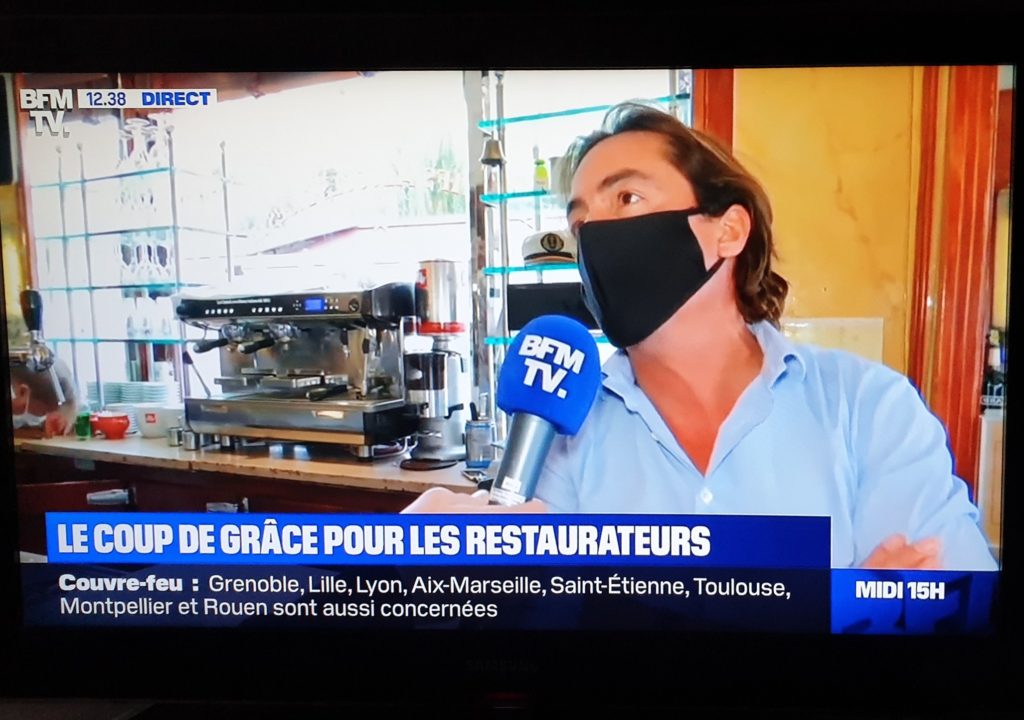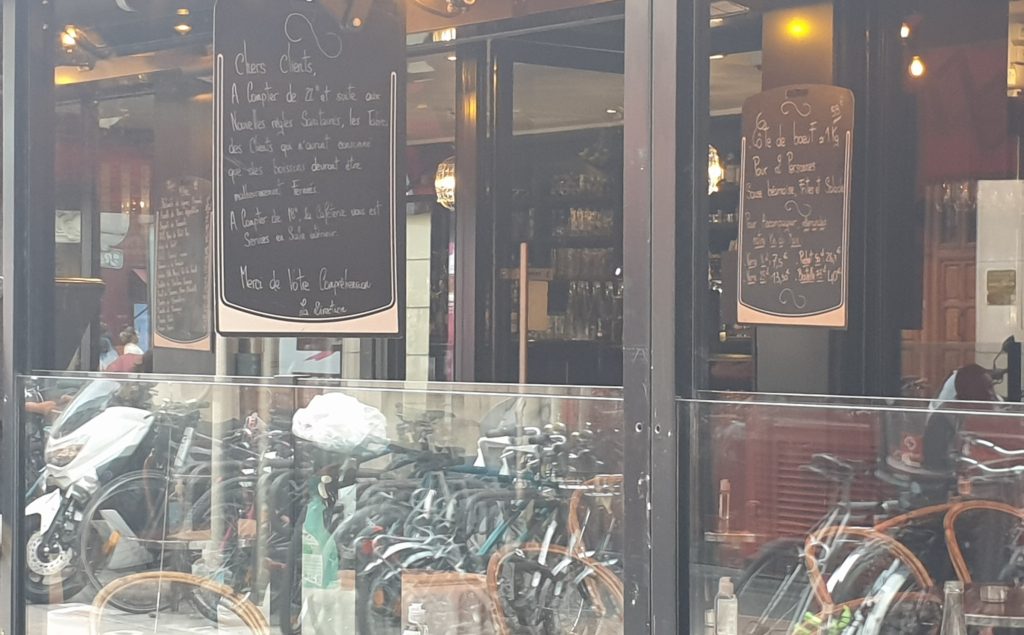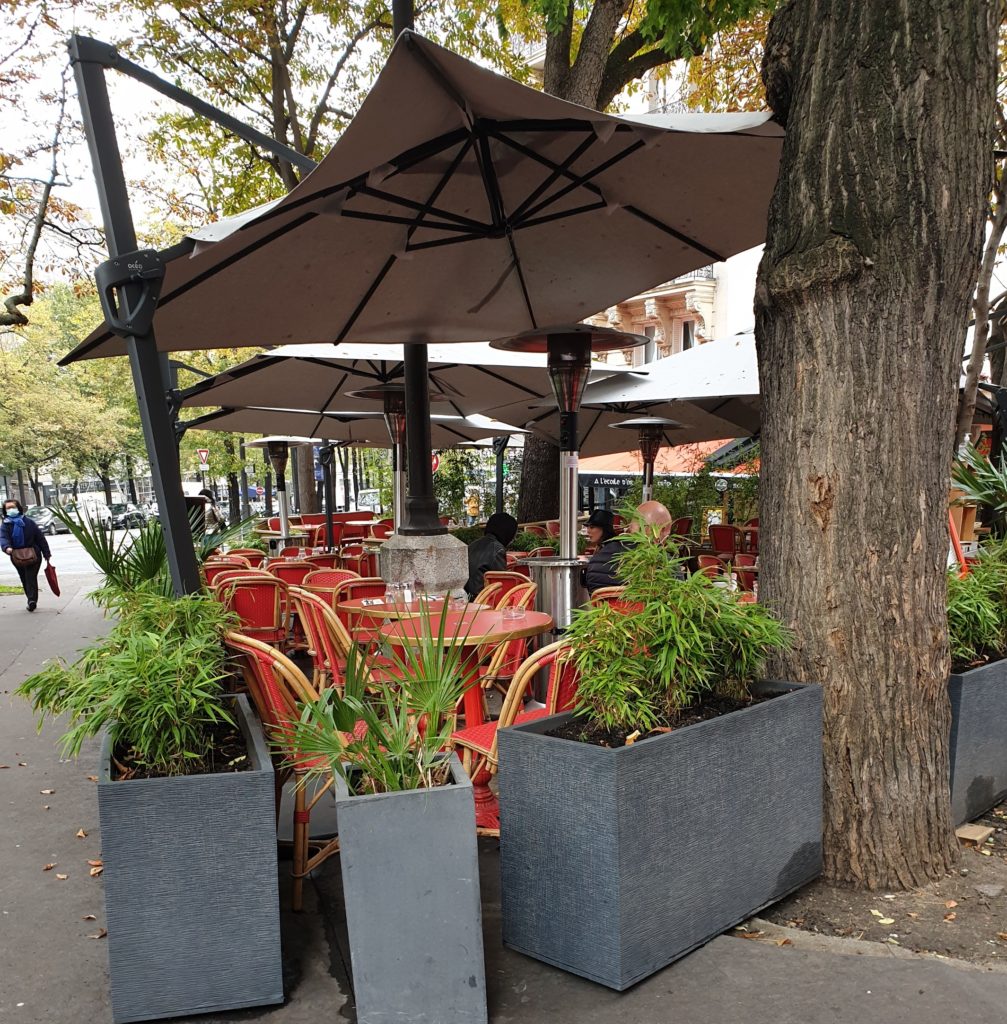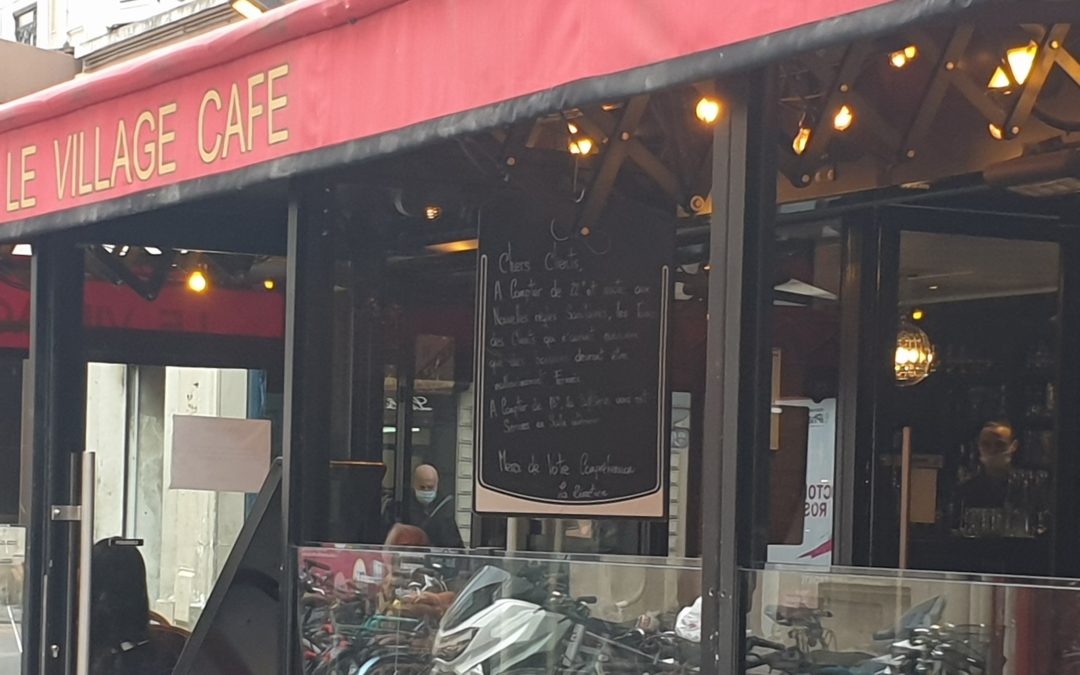President Emmanuel Macron announced a new set of COVID restrictions last night that took aim at one of the most sacred French traditions: dinner hour.
Macron imposed a curfew in Paris and other large cities from 9pm to 6am in an effort to reduce the soaring number of new cases. But here, dinner famously is consumed starting at around 8pm or 8:30pm and restaurants are often hopping until 11pm. One of the first reactions was from a TV commentator who said, “People will never be willing to eat at 7:30.”
Every nation has its own dining schedule, of course, and there’s nothing wrong with eating late by American standards. That’s certainly the schedule in our house. To me, the different mealtimes in Europe have always been one of the wonders of the European Union. You can eat dinner in Frankfurt, get on a plane, fly to Madrid and be welcomed in a restaurant for dinner.
France falls more or less in the middle of that scale. I do think it’s possible that people here cling to their schedule more rigidly. When we arrived here in 1996, with tiny kids, we invited a French couple to a very informal supper at 7. They arrived at 8:30, without a word of apology.
To change those routines is asking a lot. Restaurateurs interviewed on the news today were considering giving up serving dinner entirely. “We are talking about an assassination,” Jean-Philippe Braconnier, who runs a restaurant in Boulogne-Billancourt near Paris, said on BFM-TV. “It’s the end of the world for restaurateurs.”

Dinners with guests at home, of course, are also covered by the curfew, which goes into effect Saturday and probably will be in effect until Dec. 1. Only six people are allowed to convene, and everyone has to be back home on time.
“Imagine, I invite you to my house and you have to be home at 9pm,” a restaurant customer told Le Parisien. “It’s crazy!” The paper noted that she then burst into laughter, “as if it were in the realm of the impossible.”
As in other countries, the pandemic has been devastating for those in food service. More than 100,000 jobs have been lost, and this in a country that will do anything to prevent layoffs. During the spring lockdown, which lasted eight weeks, restaurants were closed entirely. Over the summer they opened again, first with outside dining and then inside as well.
Customers remained reluctant to eat inside, so restaurants invested to convert their terraces into places for all-season dining. (It didn’t help that temperatures in Paris dropped into the low 50s a month ago and haven’t gone up since.)
They installed glass partitions

and installed heaters.

The government will provide assistance to restaurateurs and others affected, Prime Minister Jean Castex said today. Employees who need to get home after the 9pm closing will get a waiver. Health minister Olivier Veran said it would take several weeks to see if the measures were working, but after that relaxation could be considered in cities that showed positive results.
A snap poll by Harris found that 73% of respondents supported the curfew and a large majority said they would comply. The president was found “convincing” by 60% and “courageous” by 56%.
They might have been especially focused on another aspect of his announcement: The October school vacations would not be canceled, and people were free to travel. Maybe they’ll go to smaller towns where the restaurants can stay open late.
